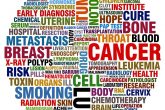
Did you know that every year more than a million children lose their mother as a result of her death in pregnancy or childbirth?
Why is all of this important?
These children are up to 10 times more likely to die prematurely than those living in families with a mother. They are also less likely to receive proper nutrition, health care and education.
The implications of a mother’s death are particularly great for her daughters, often leading to a continued cycle of poverty and poor health.
There is also significant economic impact, as it is estimated that over $15 billion in productivity is lost due to maternal and new-born death – a huge burden for Africa’s developing nations.
There are three main areas of focus for preventing complications during pregnancy and childbirth:
- Health Education
- Access to antenatal care
- Skilled health care during childbirth
Health Education:
Educating women and communities about birth planning and emergency preparedness during pregnancy, as well as the danger signs of both maternal and new-born complications is crucial to saving lives.
Signs that require immediate medical attention during or after childbirth include:
Mother:
- If her waters break but she is not in labor after six hours
- Labour pains that continue for more than 12 hours
- Heavy bleeding (soaks more than two to three pads in 15 minutes)
- Placenta not expelled one hour after the birth of the baby
Baby:
- Difficulty breathing (no cry at birth)
- Not able to feed
- Fever (>38°C) or feels cold (<35.5°C)
- Very small (less than 1,500 grams or born earlier than 32 weeks/8 months)
Access to Antenatal care
A quarter of all maternal deaths occur during pregnancy. Every woman who is pregnant should receive antenatal care – it may involve traveling long distances to the nearest health centre but it is worth the effort and cost to ensure the wellbeing of the expectant mother and unborn child.
The WHO recommends a minimum of 4 antenatal visits.
- First visit should be early at 2 to 3 months of pregnancy (1st stage of pregnancy)
- Second visit at 6 months of pregnancy (2nd stage of pregnancy)
- Third visit at 7 to 8 months of pregnancy (3rd stage of pregnancy)
- Fourth visit at 8 to 9 months of pregnancy (3rd stage of pregnancy)
Skilled health care during childbirth
It is particularly important that all births are attended by skilled health professionals, as timely management and treatment can make the difference between life and death. Clinical officers, midwives, and nurses in health canters must be trained to become competent in identifying and managing maternal and new-born complications


